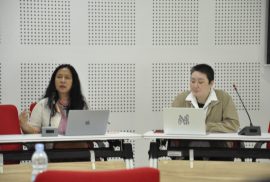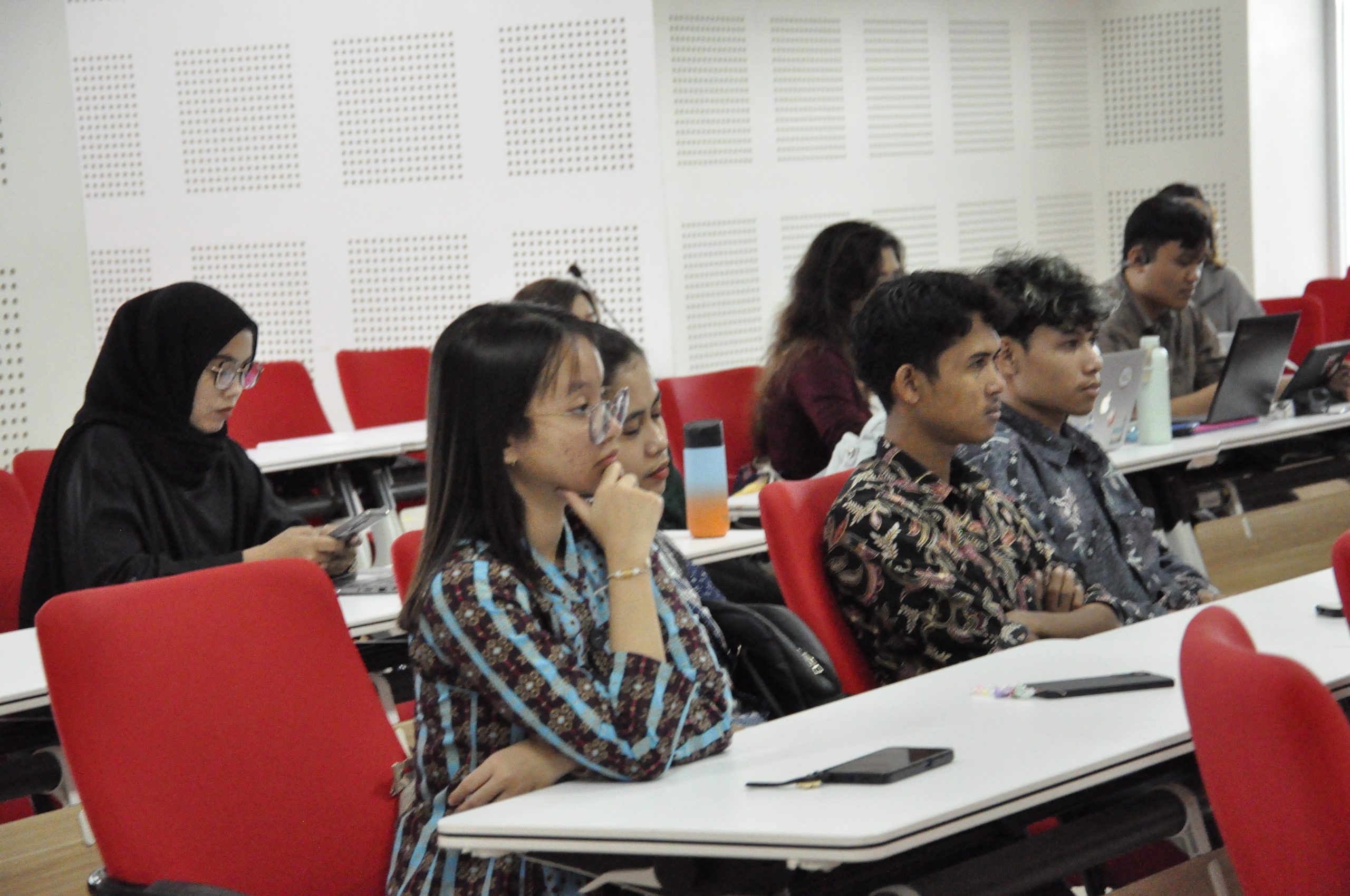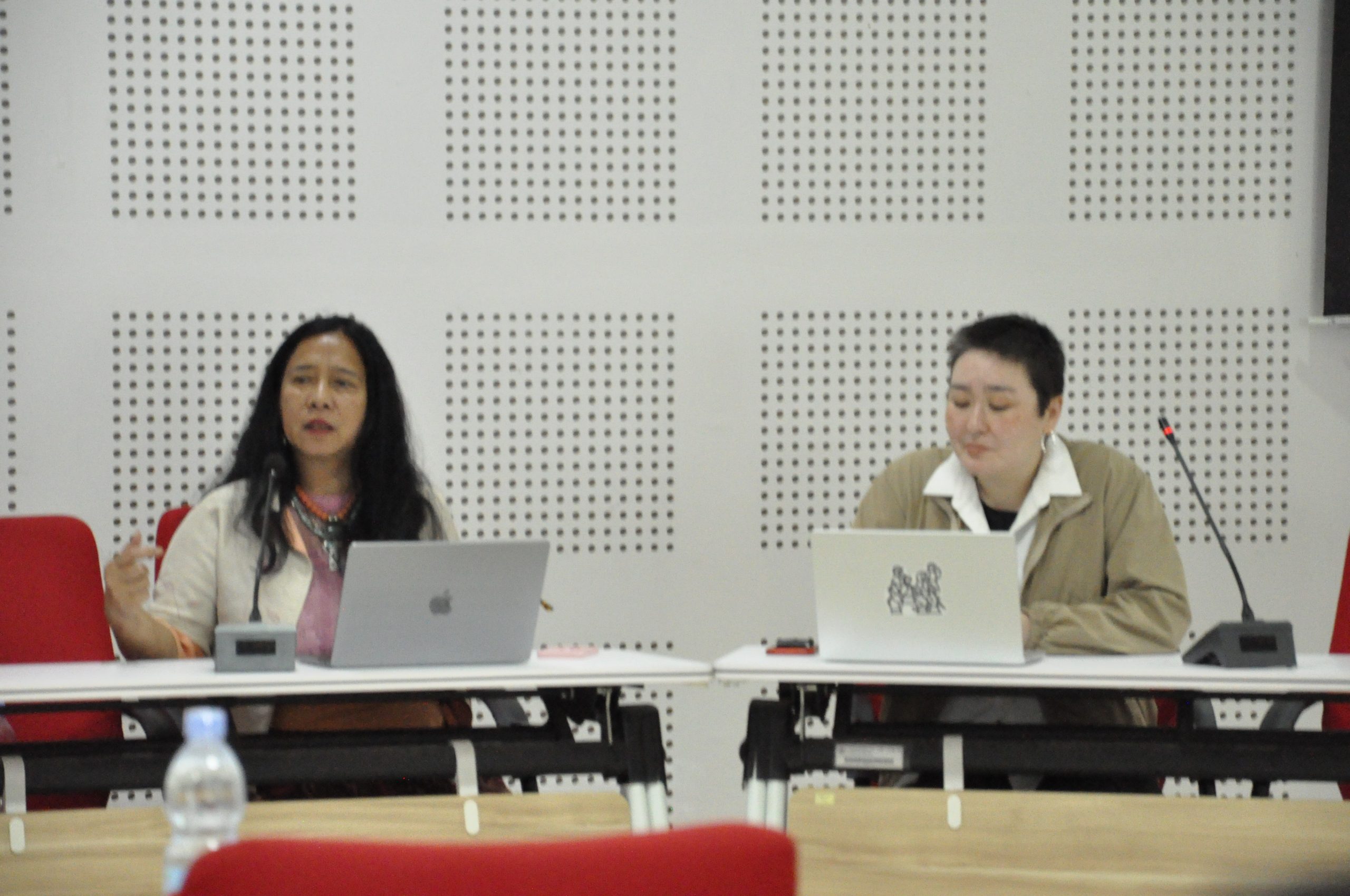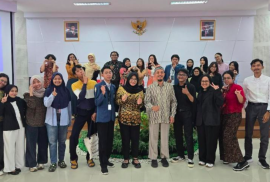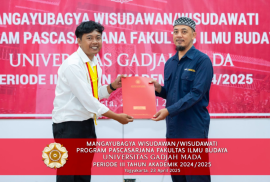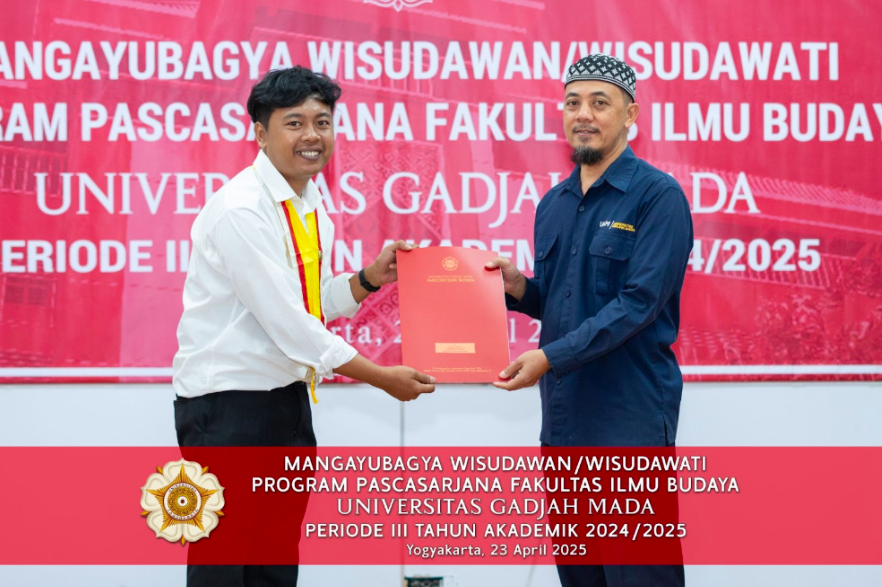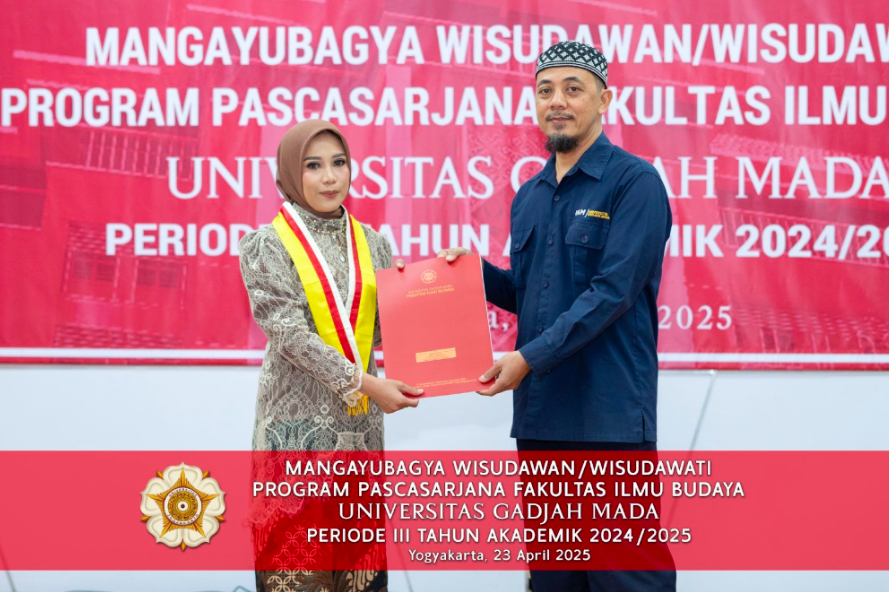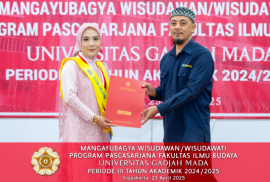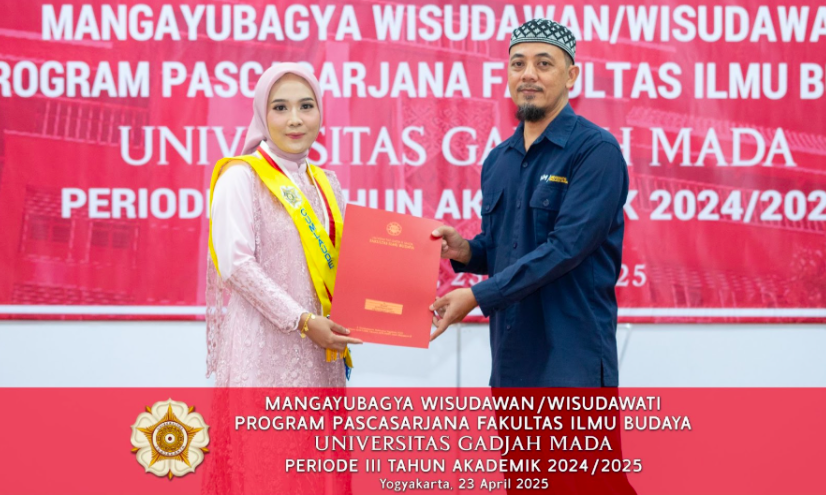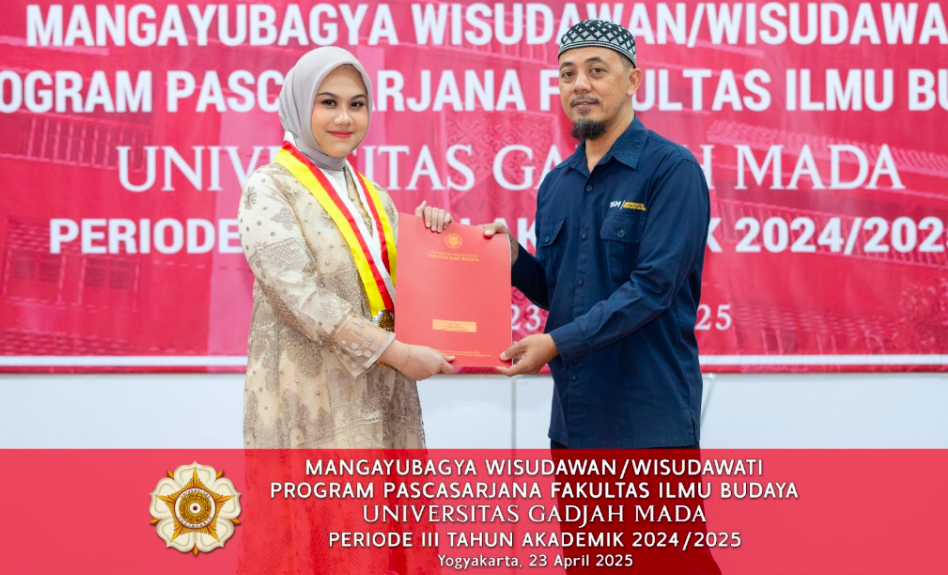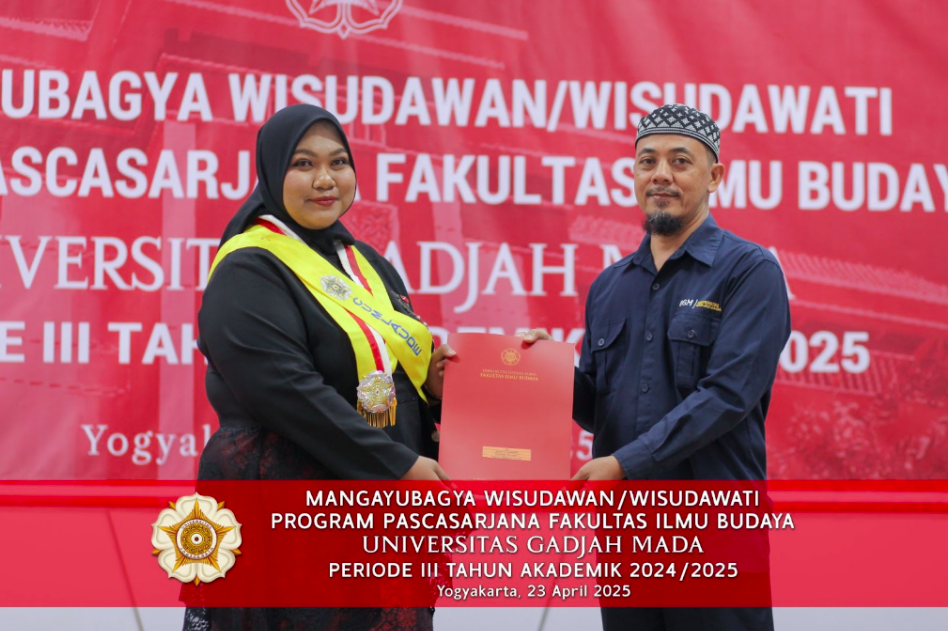Yogyakarta, October 31, 2025 — The American Studies Program, Faculty of Cultural Sciences, Universitas Gadjah Mada (FIB UGM), held a Public Lecture titled “Trauma and Cultural Awareness” at the Soegondo Building, FIB UGM.
The event featured Dr. Jack Leslie Redfern, Jr. from Goshen College, Indiana, United States, an affiliate professor renowned for his expertise in cross-cultural studies and trauma psychology.
In his presentation, Dr. Leslie explained that trauma is an intense emotional, psychological, or physical response to an event or series of events that exceed an individual’s capacity to cope. According to him, trauma can leave lasting effects on one’s functioning and overall well-being.
Furthermore, Dr. Leslie emphasized that trauma is not only defined by the objective event but also by the subjective experience of the person who undergoes it. He added that repeated minor stressors (chronic adversity) can have an impact as severe as a single catastrophic event.
In addition, cultural context plays a crucial role in shaping how trauma is recognized, expressed, and addressed within a society. Dr. Leslie illustrated this by referring to conditions in several rural Javanese villages, where values such as saving face and preserving family honor (rasa malu) often discourage individuals from disclosing experiences of domestic violence. Instead of seeking professional help, such cases are typically resolved internally through community elders or neighborhood meetings (RT/RW).
Through this public lecture, students were encouraged to understand that trauma management cannot be separated from the social and cultural contexts of a community. Cultural awareness, he explained, is essential for fostering empathy and developing more humane approaches toward trauma survivors.
This activity also aligns with the Sustainable Development Goals (SDGs), particularly SDG 3 (Good Health and Well-being) and SDG 4 (Quality Education). Through academic programs like this, FIB UGM reaffirms its commitment to deepening students’ understanding of mental health and cultural diversity while fostering awareness of the importance of inclusive, human-centered social support.
[Public Relations Office, FIB UGM – Alma Syahwalani]


